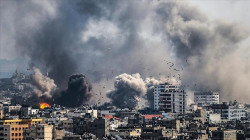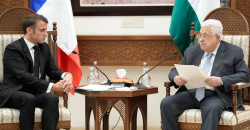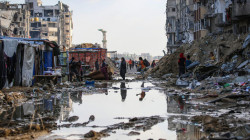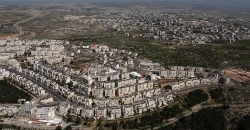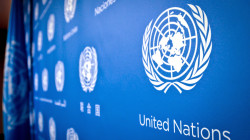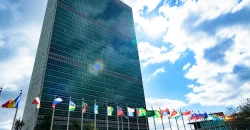Children in chains: Israel’s war on Palestinian youth
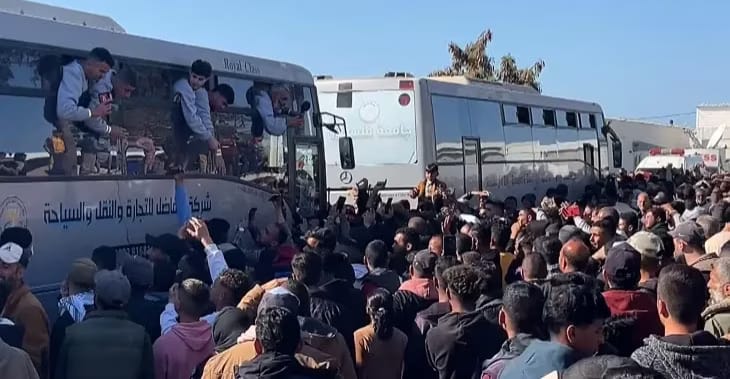
Shafaq News/ In 2015, Ahmad al-Mansarah, then 13, was arrested by Israeli forces. A video of the incident—showing him injured and dazed on the ground as bystanders shouted—spread widely online. His cousin, who had reportedly carried out a stabbing attack, lay dead nearby. Though Ahmad was later found not to have participated, he was charged with attempted murder.
Despite his age, Ahmad was interrogated without a parent or lawyer and sentenced to 12 years in prison, later reduced to nine and a half. Throughout his incarceration, he faced solitary confinement and harsh conditions, contributing to severe psychological distress. He was released in 2025 after nearly a decade, following international advocacy efforts led by human rights organizations.
Ahmad’s case, while widely publicized, is part of a broader pattern. Each year, hundreds of Palestinian minors are arrested and prosecuted by Israeli authorities, often without public attention. Their experiences raise ongoing concerns about the treatment of children in conflict and occupied territories.
Dual Legal Systems
Israel ratified the United Nations Convention on the Rights of the Child (UNCRC) in 1991, committing to legal protections for minors. However, the application of these protections differs across populations. Israeli settlers in the West Bank fall under civilian law, granting legal safeguards including parental presence during interrogation and limited pre-trial detention. Palestinian children, by contrast, are subject to military law, under which they can be arrested from age 12 and sentenced as adults from age 16.
Legal observers and rights organizations argue that this dual legal framework violates both the UNCRC and the Fourth Geneva Convention, which bars the application of military law to civilians in occupied areas. According to UNICEF, Israel remains the only country that systematically tries children in military courts.
A 2023 Human Rights Watch report highlighted that these courts lack fundamental due process protections. Defense for Children International – Palestine (DCIP) found that over 90% of detained minors reported experiencing physical abuse, including blindfolding and threats during interrogation.
Arrest and Detention
Detention frequently begins with night raids, as armed Israeli soldiers enter homes and take children into custody. DCIP estimates that 500 to 700 Palestinian minors are detained and prosecuted each year. Since 2000, over 13,000 children have been arrested.
Detainees report being blindfolded, restrained, and interrogated without legal counsel or language interpretation. Many are compelled to sign confessions in Hebrew, a language they often do not understand. Physical violence and threats are commonly reported.
Save the Children’s 2024 report found that 86% of surveyed children experienced physical violence, and 60% were placed in solitary confinement—some for over two weeks. Prisons such as Al-Jalameh (nicknamed “the Cell of Hell”), Ofer, Damon, and Megiddo have drawn criticism for overcrowding, lack of hygiene, and insufficient educational and medical services.
Lasting Impact
The psychological effects of detention are long-lasting. Former detainees frequently suffer from anxiety, insomnia, PTSD, and other mental health conditions. Reintegration into society is complicated by educational disruption and lingering trauma.
“I still wake up screaming,” said Amr al-Athamana, detained at age 14. “The cell was so small, no light, no air.” Another former detainee recalled being restrained so tightly that he lost feeling in his hands.
Legal and Political Dimensions
Critics argue that the arrest and detention of minors in the occupied territories is part of a broader strategy of control. Administrative detention—imprisonment without formal charges or trial—has also been used against children. These detentions can be renewed indefinitely.
Israel's military courts have a conviction rate exceeding 99%, according to the Israeli rights group B’Tselem. Observers say this calls into question the fairness of the system and reinforces perceptions of collective punishment.
The 2024 ceasefire deal between Israel and Hamas brought renewed focus to the issue. Over 100 Palestinian minors were released during the truce, many without formal charges. Rights advocates questioned why these minors were detained in the first place if their release could be negotiated so easily.
Ongoing Advocacy
While international conventions such as the UNCRC and the Convention Against Torture prohibit such treatment of minors, enforcement remains limited. Despite reports from UN agencies and human rights monitors, there have been few binding consequences for violations.
Organizations including DCIP, al-Dameer, al-Haq, and B’Tselem continue to document and challenge these practices, calling for legal reforms and international accountability. Former detainees have begun speaking publicly, sharing their experiences, and advocating for change.
Ahmad al-Mansarah’s release serves as both a reminder of the human cost and a call for renewed attention to the rights of children under occupation. As international bodies debate legal standards, rights groups argue that justice must begin with safeguarding every child’s fundamental freedoms—regardless of politics, borders, or conflict
